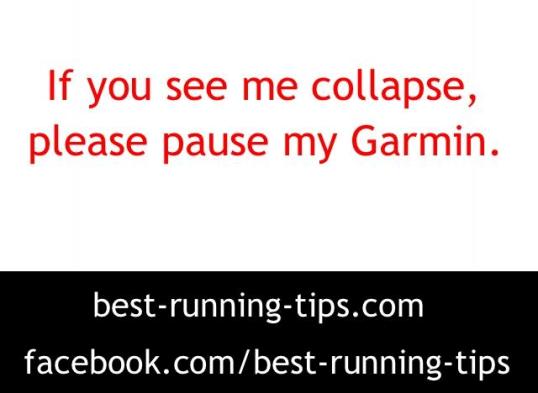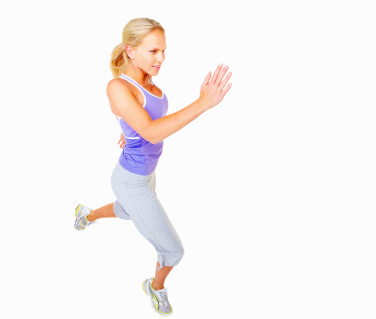Tips for Long Distance Running
Four Tips You Need to Go the Distance

You may have picked up running recently, but you are just not quite sure how to go about this "running thing". That's ok. I have got you covered through this page and this website.
Sit back, relax and have a read.
Now, let's get straight into it with some tips for long distance running.
Tip for Long Distance Running #1: Start Slow
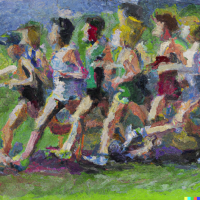
Instead, run slowly at first. Build up your distance. Speed will come later. Increasing the distance you are covering will increase your endurance. Did you know that any race that is longer than 800m long relies predominantly on your endurance to succeed?
It's remarkable isn't it?
So, when we are preparing for runs that are 5k, 10k or longer in distance, endurance becomes super-important. Speed still plays a role. But a small role. Endurance achieved through long, easy, slow runs is where it's at!
Let me share something else with you. Take elite middle distance runners. People who run the mile upto about 5k. They run their races ultra-fast. A world class 5k is done within 15 minutes. But do you know what their training looks like? They cover an incredible amount of mileage. They do long runs of 10-20 miles regularly. And a lot of that mileage is done slower than race pace. About 80-90% of their running is slower. Because they know that endurance is the most important when it comes to long distance running.
Even myself, a simple, non-elite but quite fanatical runner do that weekly slow long run of about 10-20 miles. Regardless of whether I am training for a 5k, 10k or half marathon.
Why? Well, it helps my body get used to that distance. It helps increase my endurance. When I can successfully cover the distance of a race (and more), I can then use my increased stamina to run that distance faster.
When you are a beginning runner, chances are that you are going too fast. In fact it is the number one mistake I see beginning runners make. In fact, it is a mistake made so often that I don't even know what the number two mistake is... :)
You have to keep in mind that long distance running is a totally different thing. Distance first, speed comes second!
Also see the following pages for more explanations about why slow / easy running is so good for you:
Base Running - page that explains why you need a strong foundation of easy running.
Running for Fitness - page that explores the differences between short-term gains and long-term gains and the differences between achieving short-term fitness and long-term health.
There is a place for faster running in your training as well. But first create a solid base, then work on the speed, not the other way around.
Tip for Long Distance Running #2: Increase Your Mileage Safely

You can't go from running 2 miles to running 20 miles in one week.
That's pretty straightforward.
You need some kind of gradual build up. But how do you do that?
There are some rules of thumb. The 10% rule is a popular one.
It states that you can't increase your weekly mileage by more than 10%. E.g. run 10 miles this week, then you can run 11 miles next week (10% increase).
The rule is pretty good, but a bit too general for my liking. Get used to listening more to what your body is telling you. This means that sometimes you have to stay at a certain level and sometimes you'll be able to push on by more than 10%.
The key is to listen to your body and react to aches and pains. See more about this on the increasing mileage safely page.
Tip for Long Distance Running #3: Get Enough Rest, Take Breaks and Recover
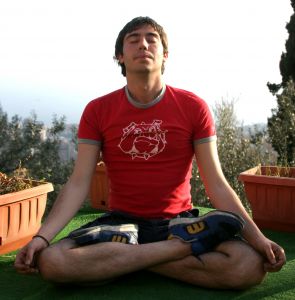
Get enough
rest and
reap the benefits
reap the benefits
A hard day of running actually makes you temporarily weaker. It damages your muscles (a little). It puts your body under stress. Your body's reaction to that stress is to make itself a little stronger. So, that it is better prepared the next time you want to test it out! And it's only when you recover that your muscles become that little bit stronger.
What is a hard day?
It depends a lot on your running background. What might be a hard day now, can be an easy day in the future. But let's try to give you some general rules for what a hard day constitutes:
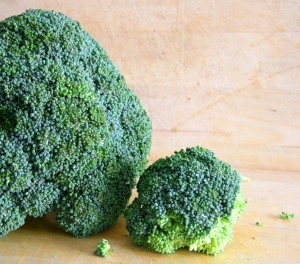
Take a holistic
approach
to your running and fitness.
to your running and fitness.
What is an easy day?
Now, what is an easy day? It can be anything.
It could be complete rest, it could be some cross-training or even an easy recovery run, relatively short and slow.
The idea of the easy day is to give the running muscles a decent break.
So, it does not have to be complete rest.
What do I do? A combination of the above. I do easy, recovery runs. I do strength training. I use the exercise bike. And I generally have 1-2 days in the week in which I do not do exercise at all. The most important thing is to find that balance between going hard on one day, going easy the next. And there are multiple ways to achieve that.
Tip for Long Distance Running #4: Hydrate and Eat Well
Now, doing all the running required to become fitter and faster is great.
But you need to make sure other elements of your life are in sync with this.
This means eating and drinking healthily.
And getting enough rest via sleep and recovery.
Check out more about healthy eating on the runner's diet page.
About eating and drinking during running.....
Drinking During the Run

Even if you don't feel thirsty during your run, get used to drinking a few mouthfuls every 20-30 minutes on your long runs, especially when your long runs go well over 60-80minutes or when it is very hot outside.
Eating During the Run
Running for 90-120 minutes or more? Then I'd highly recommend you bring a beverage that contains electrolytes to keep your body well hydrated or some energy gels.
My key rule for my long runs is that when I go over 90 minutes I eat and drink during my run. There is more and more data and research available that demonstrates that not eating and drinking during runs of that distance is just not helpful. It's depriving your body of fuel and it takes longer to recover after a very long run in which you do not eat or drink.
An energy gel or energy chew can provide you with some quick burning carbs, that can quickly get converted to energy to fuel your run and immediate recovery after the run.
Eating and Drinking after the Run
After your running it is always good to replenish with some water and a snack including some protein (to rebuild muscles) and carbs or healthy fats (to provide energy) and help stimulate recovery.
I often make myself a quick smoothie with some berries, nut butter, yoghurt, milk and/or protein powder. Very quick to put together, easy to consume, very tasty and full of the nutrients needed to refuel and start the recovery process.
Maybe the single largest benefit of long distance running is guilt-free snacking afterwards...!
These tips for long distance running are just the tip of the iceberg.
There are plenty more tips to improve.
Depending on what you are after or what your starting level is you may want to have a look at the following pages:
Home > Running Tips > Tips for Long Distance Running
What's New?
-
In the Army - Improving my 2 Mile Time
I am a 36 year old male who just joined the army. I have not run any long distance so I tried on my own to train and was doing ok but my times are still -
Marathon Diet - Improve Nutrition to do Better at the Marathon
I have got a question about my marathon diet. I have been an athlete all my life; mostly a runner, but cycle long distances sometimes. I am training -
Beginners Running Program 3 - Go from 0 to 30 Minutes of Running in 12 Weeks
The third beginners running program of Best Running Tips might be the best one. It is definitely the most popular. Get from couch to 30 minutes of solid running in only 12 weeks! -
Calories Burned Calculator - Calculate the Calories Burned While Running with This Calculator
This calories burned calculator calculates the calories burned while running, based on your weight and the distance you ran. -
Asthmatic Non-Runner With a Need to Run - 1.5 Miles in 13 Minutes
Truth be told I am NOT a runner. I can walk a 14 minute mile all day. But running, not me. I have had asthma since I was a child - severe through all -
Second Half Marathon in a Month - Should I Run It or Not?
Hi, I ran a half marathon a month ago, but have not done any great distances since, 6 miles max. I'm thinking of doing a half marathon this Sunday -
Running a 5k - Can I Be Faster at 30 Than I Was at 18?
I started running at 13 in high school. I ran cross-country, indoor and outdoor track. My track coach was very informed and my PRs were 800 - 2:22, -
Faster Minute Mile for 5K races
I'm 40 years old and I started to run consistently four months ego. My running pace went from 9 minutes miles to 7:30 minute miles in a 5k. Is it realistic -
I Need a Good Marathon Running Program
I am devastated. I ran my second marathon last weekend. I ran a marathon six months ago as well, but at about the 19-20 mile mark my legs cramped up... -
Is 20 to 30 Training Miles Enough to Run a Half Marathon
I have been a committed runner for a year and a half now and have completed two half marathons with over a dozen 10k races! I have been keeping running
